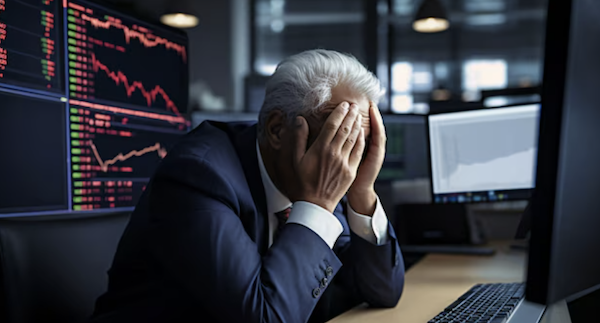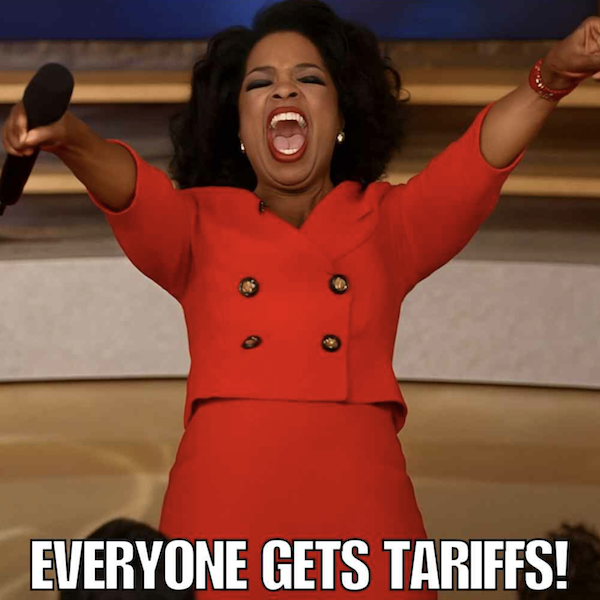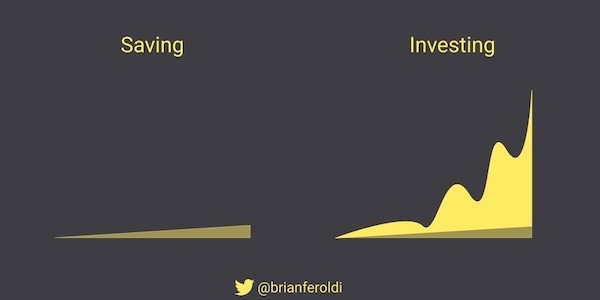Market scorecard
US markets cratered on Friday, capping off a two-day meltdown that wiped out over $5 trillion in value, the worst since the pandemic panic of March 2020. The S&P 500 tumbled nearly 6% on the day. Trump's hare-brained country-specific tariffs come into effect on Wednesday, unless he reverses course.
Fed Chair Jerome Powell acknowledged the obvious on Friday: the trade war fallout is going to hurt a lot more than anyone had hoped. That means slower growth and stickier inflation, corporate indecision, and jammed up trade. Oil also got caught in the crossfire, sinking to a four-year low.
In company news, Meta has just unleashed Llama 4, its latest and most powerful AI model yet, built on one of the world's most advanced large language model architectures.
On Friday, the JSE All-share was down 5.26%, the S&P 500 dropped 5.97%, and the Nasdaq was 5.82% lower. Fugly!
Our 10c worth
One thing, from Paul

What a horrible week; our portfolios were down over 10%. I can only imagine how clients felt when opening their Vestact mini-statements on Saturday morning. I'm sorry.
The reactions we had over the weekend varied from "sell everything and buy gold" to "I'm sending money to buy the dip."
Most people only enjoy equity investing when the market is going up, forgetting that holding through these sharp sell-offs is the "price of admission" to long-term outperformance.
The S&P 500 is now down 17% from its highs in mid-February. According to market historians, the average drawdown over the last 75 years is 14%. So this is fairly normal.
If you do have cash to deploy, I'd say that buying at these levels is a good idea. It's impossible to pick the bottom, just as it's impossible to recognise the tops.
I'd recommend putting more money into stocks like Microsoft, Google and Visa. The impacts of Trump's lunatic tariff interventions will be most felt by companies that make and sell physical goods via distributed global networks. Those 3 are mostly services companies.
Byron's beats

This week, Amazon will be launching 3 200 satellites into low-Earth orbit for what they call Project Kuiper. The satellites will beam down fast, affordable broadband services, targeting isolated communities around the world. Yes, this is a direct competitor to Starlink. Ironically, some of the satellites will be launched by SpaceX, but most will come from Blue Origin, Jeff Bezos' rocket company.
Amazon has earmarked $20 billion for the project which includes a global network of ground stations and compact, affordable customer terminals. Of course the infrastructure will be powered by AWS. The future of broadband supply is evolving in front of our eyes.
As an aside, while writing this, it reminded me that America is already great. Nowhere else in the world can you have companies launching $20 billion projects with the kind of skills and technological infrastructure to provide internet from space. These are the types of exports they should be focusing on. Not re-onshoring to build shoe factories in the Midwest where no one wants to work. Long live US corporate excellence. Down with US political failure.
Michael's musings

I'm still struggling to get my head around the new taxes from the White House. The last time the market dropped like this was in 2020. That was when the whole world was worried about the deaths of millions of people.
Back then we were overwhelmed by fear and uncertainty, so it made sense for the market to be dropping. This time around it's plunging because of wilful policy blunders and crazy economic theories. This time the stock market pain is all self-inflicted.
The lack of finesse in implementing the new trade policy is what really blows the mind. The fact that the taxes are solely based on the deficit in the trade of goods shows the lack of planning. Even countries where the US has a trade surplus got hit with tariffs.
The more I think about it, the only thing that makes sense to me is that this is a negotiating tactic. Step one is publishing some ridiculously high tariff numbers. From there, you hope that your global trade partners come to the negotiating table to try to avoid the implementation of the new taxes. If all goes according to plan, a favourable deal will be struck.
Maybe I'm wrong, and Team Trump truly believes that crushing global trade is good for the US. But why would the US consumer be happy to pay significantly more for goods?
Bright's banter

In a rough week where markets shed nearly 10% in just two days after Trump's global tariff barrage, it's worth revisiting the real culprits behind most investors' poor performance: themselves.
Over the past decade, the US equity market returned 178%, or 10.3% per year. But the average investor only managed to pocket around 4% of that. Why? Because in moments like these - sharp selloffs, headline-driven chaos - people panic and they act badly. They try to time the bottom, they let their gut override discipline, and they trade themselves into mediocrity.
It's no surprise then, that in the middle of Trump's latest policy whiplash, many investors are once again tempted to abandon boring, rule-based investing in favour of "doing something." But study after study shows that reacting feels good in the moment, but costs you dearly over time.
The recent volatility also reignites that old fear: "Volatility equals risk." But it shouldn't, it only increases risk if your holding period is a few days or months. In fact, shares, despite their ups and downs, have historically outperformed other asset classes - even after adjusting for volatility. Yet in the face of short-term market pain, many investors run for the hills and park in "safe" assets that barely beat inflation.
And while markets sold off hard - a 10% tantrum in two days, history tells us this isn't new. The average intra-year drawdown since 1928 is 16.4%. Things were downright nasty in the 1930s but even if we look at the numbers since 1950, we're still looking at an average intra-year drawdown of 13.7%. Yet 77% of those years still ended positive. Ignoring history is just another way to ruin your financial life - and sadly, one of the most popular.
So yes, Trump may have shaken the markets with his latest tariff blitz, but the bigger danger is what you do next as an investor. If you're tempted to react, remember: markets throw tantrums, but they recover. Investors who throw tantrums rarely do.
Linkfest, lap it up
For eight years straight, Finland tops the "happiness" index. Impressive considering that they don't have great weather - See how happiness is actually measured.
Microsoft's products are an integral part of modern life. The company has had some ups and downs over the years - Microsoft turns 50. Here are 18 of its biggest moments.
Signing off
The Asian market selloff went from bad to worse as Trump's tariff tirade triggered fresh retaliation from China. Beijing's proposed countermeasures rattled nerves across the region, sending benchmarks tumbling from Seoul to Mumbai. The MSCI Asia-Pacific index plunged as much as 8% intraday, marking its worst single-day drop in over 16 years.
In local company news, owner of Easy Equities, Purple Group says it's expecting a headline earnings per share (HEPS) increase of between 194% and 213% for the six months to end-February, a sharp swing back into profitability.
US equity futures look very ropey in early pre-market trade. The Rand is trading at around R19.32 to the US Dollar.
Keep calm, we will survive this test.